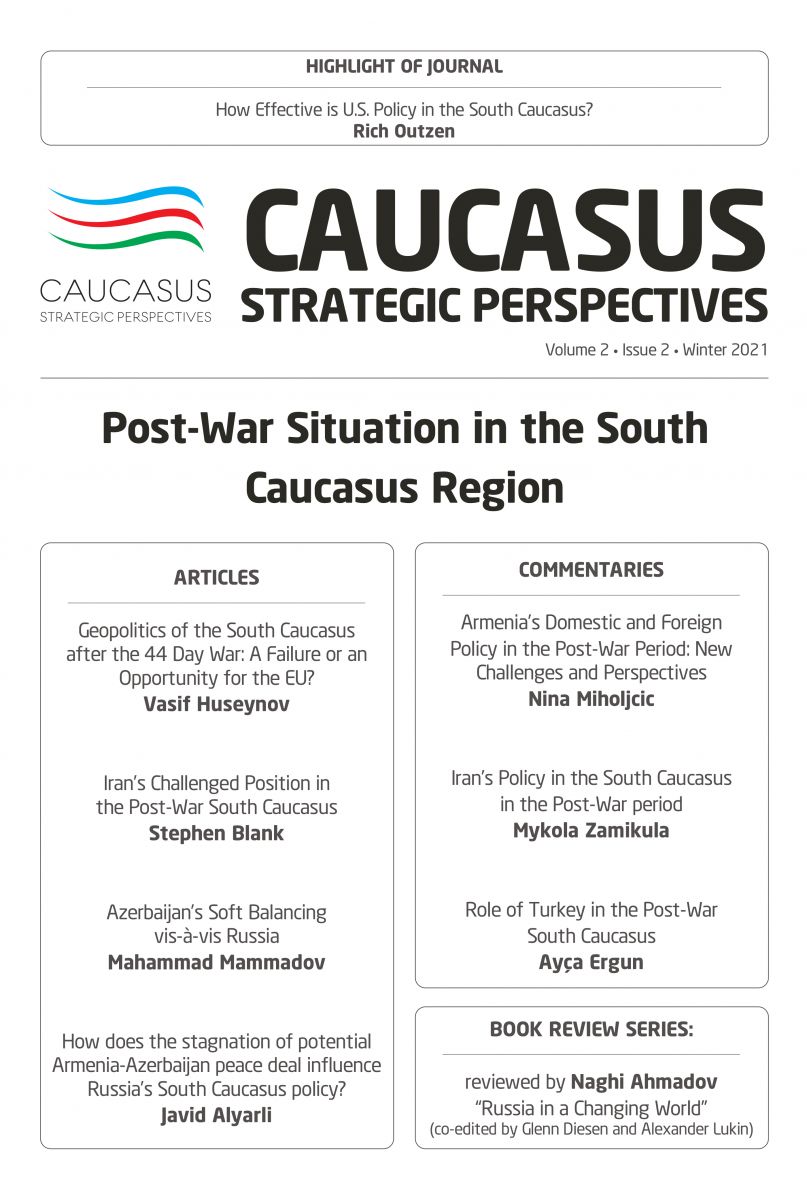How does the Stagnation of the Potential Armenia–Azerbaijan Peace Deal Influence Russia’s South Caucasus Policy?
In the period following the Second Karabakh War, tension between Armenia and Azerbaijan has continued owing to the partial implementation of the 10 November Trilateral Statement, the inefficiency of Russian peacekeepers in maintaining stability in the Karabakh region, and disagreements on the demarcation and delimitation of the Armenia–Azerbaijan international border. This article seeks to identify the extent of the implications of the stagnation of normalization of Armenia–Azerbaijan relations for Russia’s foreign policy in the South Caucasus. The paper finds that the failure to sign a potential peace treaty contributes to Russia’s legal and military presence in the geopolitical conundrum of the region and extends Russia’s leverage over both countries, whereas the delay of the reopening of transport and economic links in the South Caucasus due to security concerns deprives Russia from economic and political advantages. With respect to Armenia, the rise of tension ingrains Russia’s security umbrella over the political and military paradigms of the Armenian government and enables the Kremlin to repair its damaged image in Armenian public opinion. With the retrogression of Armenia–Azerbaijan relations and the associated delay in Azerbaijan’s restoration of its full authority in the Karabakh region, where Russian peacekeepers are temporarily deployed, and the stall in the return of internally displaced people, the Kremlin is seeking to induce Azerbaijan to integrate into Russian-led security and economic integration alliances.
Latest news
- 12/27/2024 Call for Submissions-Caucasus Strategic Perspectives, Volume 6, Issue 1, Summer 2025 667 views
Popular articles
- 07/18/2022 The Russia–Ukraine War: Perspective of Azerbaijan 4322 views
- 10/14/2020 The Non-Aligned Movement: In Pursuit of Validity and Relevance in the Contemporary Global Order 3307 views
- 10/14/2020 Vicious Circle of the South Caucasus: Intra-Regional Conflicts and Geopolitical Heterogeneity 3290 views
- 10/14/2020 Relevance of Non-Alignment for Azerbaijan’s Foreign and Security Policy 3019 views





